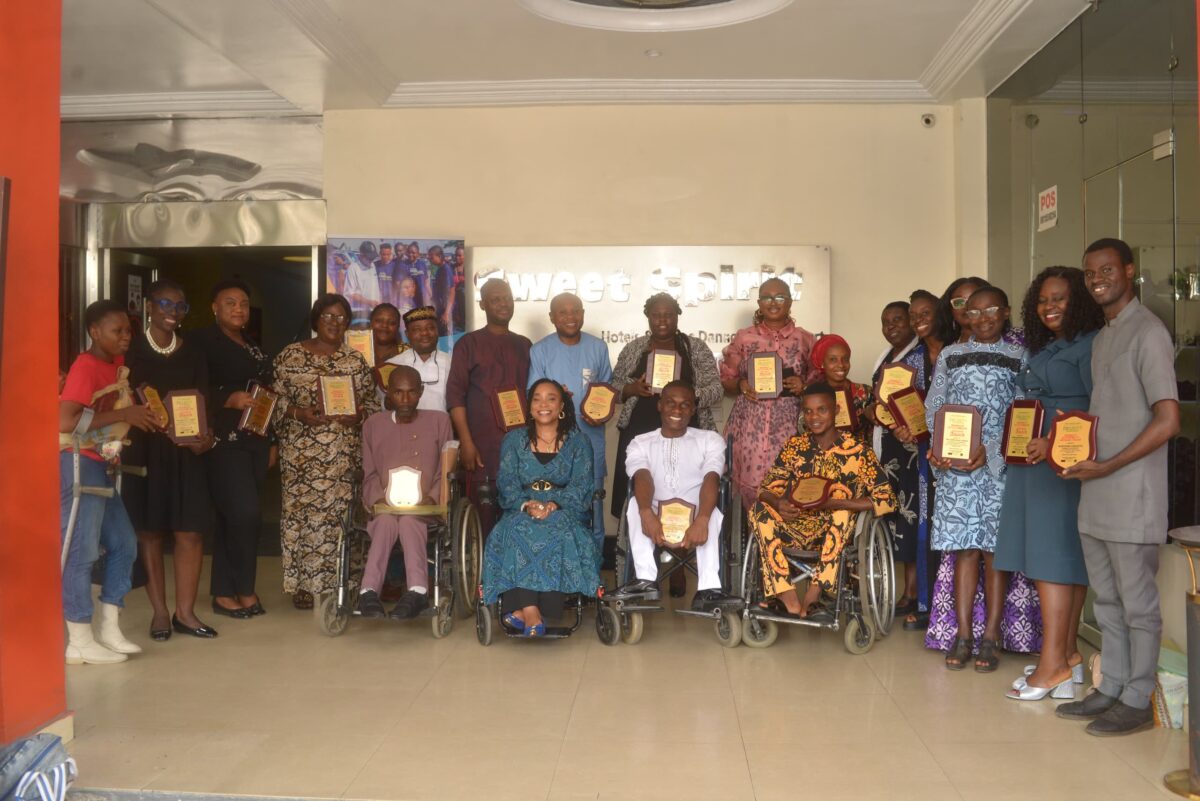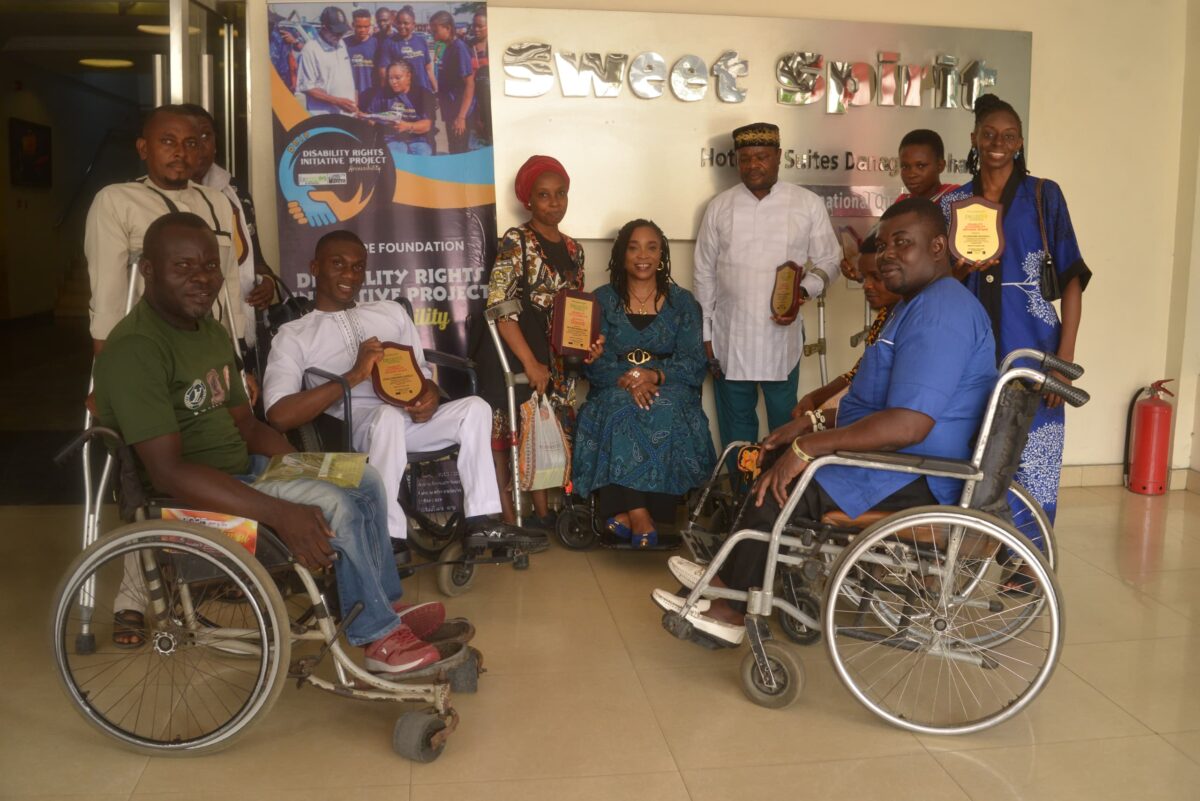FAECARE FOUNDATION ENGAGES KEY STAKEHOLDERS AND HONOURS DISABILITY ACCESSIBILITY CHAMPIONS
Port Harcourt, Nigeria – March 21, 2025 – FAECARE Foundation successfully hosted its Stakeholder Engagement program, marking the conclusion of the Disability Rights Initiative Project: Accessibility (DRIPA), which was launched last year to promote accessibility and inclusion for persons with disabilities (PWDs) in Rivers State.
The program commenced with the distribution of the Disability Rights Initiative Project: Accessibility (DRIPA) kits containing essential advocacy materials to all participants. The formal proceedings began with the national anthem and an introduction to FAECARE Foundation, highlighting its mission to empower and support vulnerable groups, including persons with disabilities.
The program brought together key stakeholders, advocates, and invited guests, who engaged in discussions. The Executive Director, Amb. Ndifreke Andrew-Essien, delivered an engaging welcome address, emphasizing the need for urgent action by the government, private sector, and general public to improve accessibility for persons with disabilities in Rivers State. Among the critical recommendations were:


• Domestication of the National Disability Act or enactment of a rights-based disability law for Rivers State.
• Establishment of a well-funded and active Rivers State Disability Rights Commission.
• Appointment of a Special Adviser on Disability Affairs to the State Government.
• Mandating accessibility in public buildings and infrastructure.
• Targeted training for public service providers.
• Increased accountability from policymakers and government officials.
• Incorporation of disability inclusion in all projects and programs.
• Ensuring private establishments providing public services are fully accessible.
• Strengthening PWD-led advocacy and ensuring their involvement in policy formulation.
• Continued mass media sensitization campaigns to educate the public and policymakers.
• Establishment of a well-funded and active Rivers State Disability Rights Commission.
• Appointment of a Special Adviser on Disability Affairs to the State Government.
• Mandating accessibility in public buildings and infrastructure.
• Targeted training for public service providers.
• Increased accountability from policymakers and government officials.
• Incorporation of disability inclusion in all projects and programs.
• Ensuring private establishments providing public services are fully accessible.
• Strengthening PWD-led advocacy and ensuring their involvement in policy formulation.
• Continued mass media sensitization campaigns to educate the public and policymakers.
The Chairman’s opening remarks was closely followed by Goodwill messages delivered by distinguished guests and key stakeholders. The technical adviser on the project, Barr. Agbaje delivered a presentation on the findings of the audit report like one of the stark revelations from the audit that 43.5% of respondents in Rivers State are unaware of the Discrimination Against Persons with Disabilities Law.
Those familiar with the law primarily learned about it via social and traditional media, conferences, or through the efforts of civil society organizations like FAECARE Foundation.Dr. Obraori Adiela, in her in her keynote address, emphasized that accessibility is a legal right and called for Rivers State and the stakeholders present to lead by example in disability inclusion.
A key highlight of the program was the presentation of a documentary video showcasing DRIPA’s accomplishments, including three-day training programs, refresher sessions, advocacy visits, and accessibility walks. The film highlighted progress made and areas requiring continued advocacy. Another major highlight was the recognition and award presentation by Executive Director, Amb. Freky Andrew-Essien tovarious individuals, organizations, stakeholders dubbed disability accessibility champions, and to persons with disabilitiesdubbed Disability Accessibility Advocate. These were honoured for their dedication to promoting accessibility in Rivers State.
Following the award presentations, FAECARE Foundation introduced its next phase of advocacy—the Disability Rights Initiative Project: Rural Rivers (DRIP:RR). This new project aims to extend accessibility and disability rights awareness and advocacy to rural communities in Rivers State. Faith Amadi, in her presentation, emphasized that while DRIPA has concluded, the advocacy for disability rights and accessibility must continue, particularly in underserved areas.
The program reinforced FAECARE Foundation’s commitment to fostering an inclusive society where accessibility is prioritized and persons with disabilities can fully participate in all aspects of life. The call to action remains clear—stakeholders, government officials, private organizations, and the general public must collectively work towards ensuring that accessibility is not just a policy, but a reality in Rivers State.
